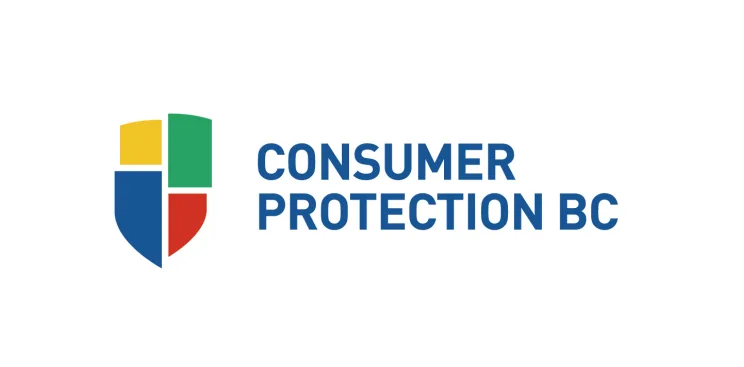
If I don’t pay the repair bill, is the garage allowed to keep my car?
If you’ve had a problem with a car repair, the best thing to do is negotiate with the garage to work out a solution. We walk you through your rights and options. If your negotiations aren’t successful, you can take further steps to get the problem resolved.
What you should know
“When my car started making a knocking noise, I took it to a garage nearby. They inspected the engine and said it needed a new transmission. They estimated the repairs would cost $1,000. I agreed to the work being done. When I picked up the car, I got a bill for $2,000. I complained to the garage’s owner. I argued it’s unfair for them to charge so much more than the original estimate. Thankfully they agreed to reduce the bill to $1,200.”
– Andrew, Surrey, BC

When you bring your car to a garage for repair work, the garage may provide an estimate or a quote of how much the repair will cost.
If the garage gives you the estimate before beginning the work, they have the right to charge you more in the end, within reason.
It can be difficult to agree on what within reason means. It would be reasonable, for example, for the garage to charge 10% or so more if the repairs took longer than anticipated or more parts were needed. But charging double? That's not within reason. In fact, under BC law, it’s an unfair practice for the garage to provide an estimate that is materially less than the final bill — unless you agree to the higher price before the repairs are done.
If you aren’t sure what’s reasonable, you can get a second opinion from another garage.
The difference between a quote and an estimate
A quote is a promise by a business to do work at an agreed-upon price. If you accept the quote, the business can’t charge you more. It’s a legally binding contract.
An estimate is a business’ best guess as to how much certain work will cost. The end price could be less — or more. Whether an estimate is a binding contract depends on the intention of the parties. When an estimate is found to be binding, a margin of error of 10% to 20% is commonly accepted. That means the business can charge 10% to 20% more in its final bill than its original estimate.
If the garage provides a quote or you agree on an amount before the garage does the work, you’ll have to pay the full bill. This is because you’ve entered into a fixed-price contract with the garage (even if you didn’t sign anything). You can ask for them to come down on the price, but they don’t have to.
If no price was agreed on before the work was done, you have a legal right to only pay a reasonable price.
If the garage is charging you what seems an unreasonable amount, ask them to come down on the price. If they won’t budge, you can take further action.
If the repair work wasn’t done with reasonable skill and care, you have the legal right to get the work done again or get a price cut. (Agreeing on what’s reasonable can sometimes be tricky, so it’s a good idea to get a second opinion from another garage.)
You should ask the garage to fix any problems that:
weren’t repaired properly
weren’t correctly found
didn’t exist before you took the car to them
If the garage says it won’t do the additional work, here’s something you can try: Ask if they’re willing to have an independent garage or vehicle engineer look at the car, to see if the work was done properly. (A garage that’s confident in its work should be okay with this.) You and the garage would need to agree on who provides this report, how the cost would be split, and that you’ll both accept the findings. If the report shows the work wasn’t done properly, then the original garage should fix the car.
Ask the “second opinion” garage to give you a written quote or estimate for the work. This will prove that the repairs or service need to be done again, and could help you negotiate with the original garage for the problem to be fixed.
You can also ask the original garage to give you a partial refund — you have the legal right to a price reduction if the work wasn’t done with reasonable care and skill. A second opinion can help you and the garage agree on what’s reasonable.
If you told the garage to do whatever needs to be done to fix your car, then you gave them the right to decide what work to do. You’ll have to pay if the work was necessary and the price is reasonable. Get a second opinion if you think the price is far too high.
If you only asked the garage to do a specific job and they did extra work you didn’t ask for, you can request they undo that extra work. If this isn't possible, you should insist you only pay for the work that was agreed to.
Under BC law, businesses aren’t allowed to use unfair practices to convince you to do business with them. This means they can’t do anything, or make any statements (orally or in writing) that could deceive or mislead you.
For example, a garage must not:
tell you their services or parts are of better quality than they actually are
tell you a repair or part is needed if it isn’t
provide an estimate that’s substantially less than the final price they charge — unless you agree to the higher price before the repairs are done
Another type of unfair practice is when a garage does something unconscionable. An example is taking advantage of a vulnerability — like a language gap — that limits your ability to protect your own interests.
If the garage does something unconscionable, you’re no longer bound by any work order or agreement you signed. You can refuse to pay for the repair work.
You can ask for a courtesy car
If the repair is taking a long time, you can ask the garage for a courtesy car (that’s a car the garage lends you while yours is in the shop). Not all garages will provide a courtesy car. Keep a record of everything extra you spend on travel — you might need to prove this later on.
If the car is having body work done and parts are delayed, you could ask to take your car back and return it when the parts arrive.
The other actions you should take will depend on whether or not you originally agreed on a date for the work to be finished.
If you agreed on a finishing date and you want the original garage to complete the job, you should negotiate a new deadline for the repairs to be done. If you're not sure what the new deadline should be, get the opinion of another garage about how long the work should take.
If you didn’t agree on a date for the work to be finished, you have the legal right to get the work done within a reasonable time.
You can ask the garage for a partial refund (if you paid in advance) if they don’t do the work within a reasonable time. A second opinion can help you and the garage agree on what’s reasonable.
Take further action if you can’t agree on a reasonable date to finish the work, or if the work doesn’t get done by the new agreed-upon date. See below, under work out the problem.
When you leave your car with a garage, the garage must take reasonable care of it. If they don’t, they’re responsible for any damage or loss while the car’s in their possession.
It’s best to point out the damage as soon as you notice it. If you don’t, you could be seen to have accepted what’s happened.
The maximum the garage is obliged to offer you is the cost to repair any damage — not make improvements. For example, if they’ve scratched the door of your car, they should pay to repaint the door, not necessarily buy you a new door.
Keep your receipts
Keep a record and receipts of any extra money you have to pay for travel while you’re disputing a bill. You might need to prove this down the line.
The garage is allowed to keep your car if you don’t pay the repair bill. The law gives the garage a lien on a vehicle it repaired. A lien is a legal claim made on someone else's property — in this case, your vehicle — to make sure they pay a debt — in this case, the repair bill.
Work out the problem
If you need the car but aren't happy with the bill
If you need the car back but aren’t happy with the amount you’ve been charged, you can pay “under protest,” and then continue with your dispute.
Paying under protest means you’re paying the full amount of the garage's bill but letting them know to expect further action.
Write the words “paying under protest” clearly on their copy of the repair work order and any copies of receipts that the garage makes. If you don’t say you’re paying under protest it may be difficult to get compensation later on. That’s because the garage could argue that by paying the bill you were accepting the charges.
If you can’t afford to pay, offer to pay what you consider a reasonable amount in exchange for getting the car back, then dispute the rest of the bill separately.
In raising your concerns with the garage, take a moment to consider what outcome you’re hoping for. Do you want them to complete additional repairs? Reduce their bill? Pay for additional repairs to be done by another garage?
Now reach out to the garage. In person or over the phone, ask to speak with a manager or owner.
Clearly explain your problem. Let them know you understand what you’re entitled to. Tell them the outcome you’re seeking. Keep a record of your conversations.
If you aren’t getting anywhere with the garage, you have options to help you get the work done or claim compensation. But you should always try to negotiate with the garage first.
If the garage doesn’t agree to make things right, the next step is to write or email the garage so you have a record of the problem and your communication to them.
The letter should cover these points:
what was agreed to when you brought the car in for repairs (include the date)
details of the problem, including when you first noticed it
what you’ve done to try to resolve the problem
what you want them to do to resolve the problem
We offer a tool to help you build a letter to complain about poor servicing of a vehicle or being overcharged for a car repair. They’re also available as template letters you can download. What goes into the letter will depend on your situation.
Keep a copy of the letter for yourself. If you can, send the letter by registered mail or courier. That way you’ll have proof the garage got it.
If the letter doesn’t resolve the problem, ask the garage if they’re a member of any trade association such as the BC Automobile Association or the Automotive Retailers Association.
Contact the trade association and explain your circumstances to them. Ask if they provide assistance with complaints about member organizations.
Find out if the garage is a member of the Better Business Bureau. If they are, contact the Better Business Bureau serving your area to file a complaint.
If you’re concerned you were misled or pressured into getting your car fixed, contact Consumer Protection BC. This agency investigates possible violations under the BC law that prohibits businesses from using unfair practices to convince you to do business with them.
If you still can’t solve the problem with the above steps, your last resort may be legal action. This can be costly and time-consuming; make sure you’ve exhausted all other options.
If your claim is for less than $5,000, you can bring it to the Civil Resolution Tribunal. This is an online system designed to be used without the help of a lawyer.
If you do decide to sue, note that there are time limitations on filing lawsuits. If you don’t have a lawyer, there are options for free or low-cost legal help.
Common questions
First, talk to the manager or owner of the garage. Tell them what the initial issue was, what you expected from the repair work, and why you’re not satisfied.
If discussing the problem doesn’t lead to a resolution, send a complaint letter. You can use this tool to build a letter to complain about poor servicing of a vehicle.
If the letter doesn’t get anyone moving, find out if the garage is a member of the Better Business Bureau. If they are, contact the Better Business Bureau serving your area to file a complaint.
As well, find out if the garage has a social media presence, such as a Facebook or Twitter account. Social media has become a very effective way for customers to get the attention of service providers. There are many examples of dissatisfied customers posting their concerns to a company’s Twitter feed, for example, and getting resolution.
Who can help

Better Business Bureau (BBB)
Receives complaints about local businesses that are members.

Consumer Protection BC
Investigates possible violations under BC law prohibiting unfair practices.

Access Pro Bono’s Everyone Legal Clinic
Clinicians provide affordable fixed-fee services on a range of everyday legal problems.

Lawyer Referral Service
Helps you connect with a lawyer for a complimentary 15-minute consult to see if you want to hire them.

BC Legal Directory
Search for a lawyer by community, area of law, or language spoken. From the Canadian Bar Association, BC Branch.

